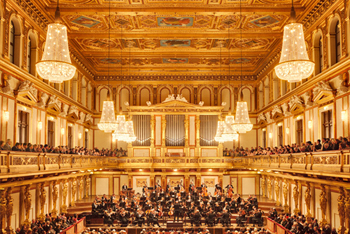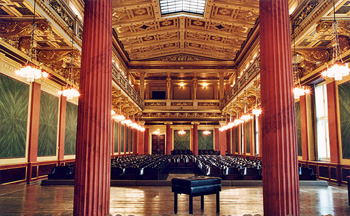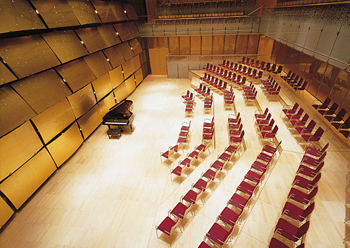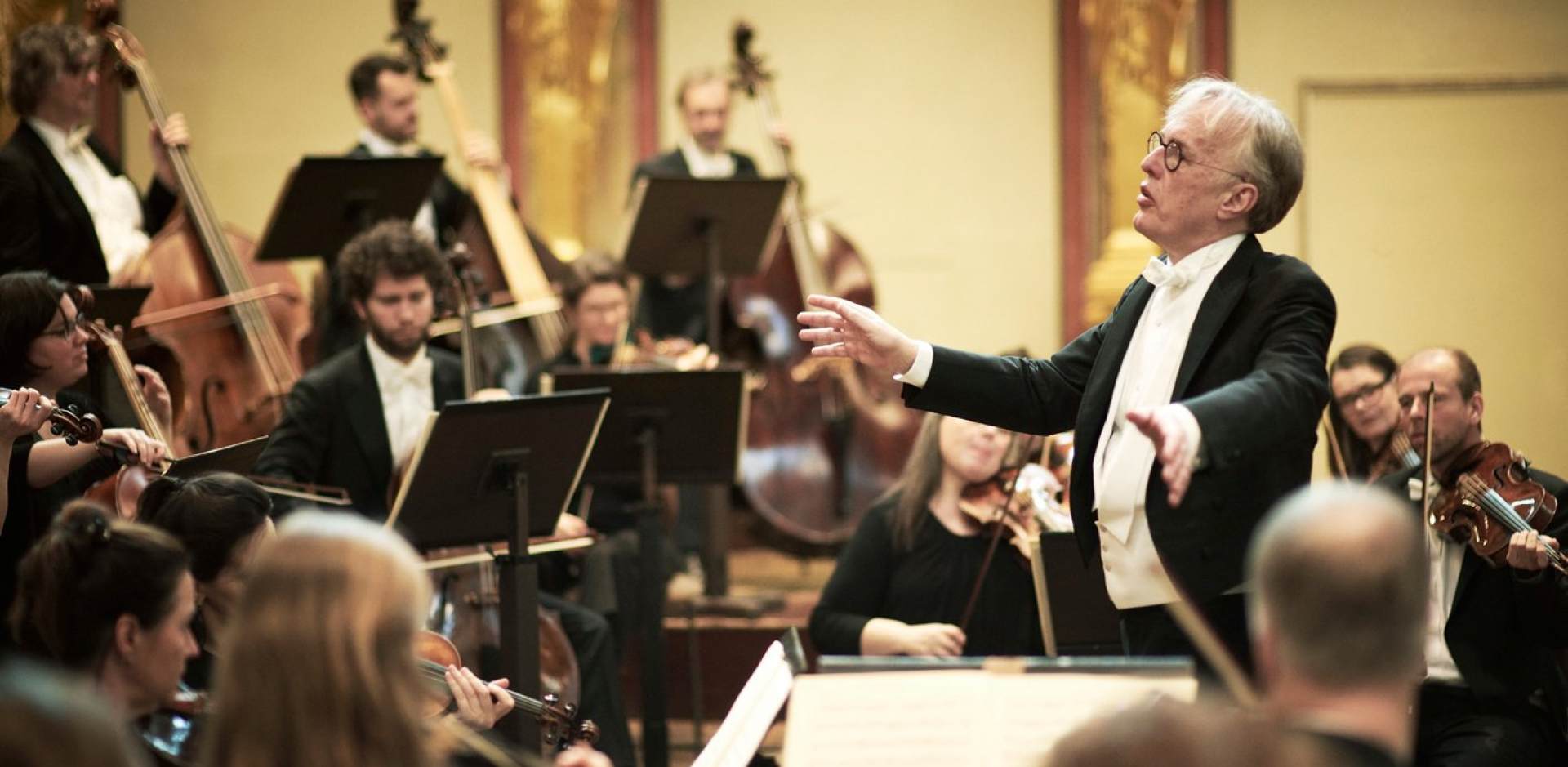Orchestra of the Vienna Academy
Mo | Tu | We | Th | Fr | Sa | Su |
Program and cast
Saturday, 10 May 2025 – 19:30
Orchester Wiener Akademie
Martin Haselböck, conductor and organ
PROGRAM
GEORG FRIEDRICH HÄNDEL
Concerto for Trumpets and French Horns in D major, HWV 335a
Water Music. Suite No. 1 in F major, HWV 348
Water Music. Suite No. 2 in D major, HWV 349
– Intermission –
GEORG FRIEDRICH HÄNDEL
Concerto for Organ and Orchestra in F major, Op. 4/4, HWV 292
Music for the Royal Fireworks in D major, HWV 351
Thursday, 2 October 2025 | Orchester Wiener Akademie Anniversary Concert | Brahms Hall
Orchester Wiener Akademie
Martin Haselböck, conductor
Johanna Rosa Falkinger, soprano
Hannah Fheodoroff, soprano
Daniel Johannsen, tenor
Alexandre Baldo, bass
PROGRAM
JOHANN SEBASTIAN BACH
Be silent, chatter not. Cantata, BWV 211 (Coffee Cantata)
Brandenburg Concerto No. 4 in G major, BWV 1049
What pleases me is only the lively hunt. Cantata, BWV 208
Saturday, 1 November 2025
Orchester Wiener Akademie
Vienna Boys’ Choir
Chorus Viennensis
Martin Haselböck, conductor
Miriam Kutrowatz, soprano
Michaela Selinger, mezzo-soprano
Jan Petryka, tenor
Florian Boesch, bass
Ján Krigovský, double bass
PROGRAM
JOSEPH HAYDN
Symphony in E-flat major, Hob. I:103 (Drumroll Symphony)
WOLFGANG AMADEUS MOZART
A German War Song, KV 539 (I Would Like to Be Emperor)
Per questa bella mano. Aria for bass, obbligato double bass, and orchestra, KV 612
– Intermission –
JOSEPH HAYDN
Missa in tempore belli in C major, Hob. XXII:9 (Paukenmesse)
Sunday, 30 November 2025
Orchester Wiener Akademie
Martin Haselböck, conductor
Johanna Rosa Falkinger, soprano
Kathrin Zukowski, soprano
Alois Mühlbacher, alto
Reginald Mobley, alto
Daniel Johannsen, tenor
Benedikt Kristjánsson, tenor
Stefan Zenkl, bass
Felix Schwandtke, bass
PROGRAM
JOHANN SEBASTIAN BACH
Sound, you kettledrums! Resound, you trumpets! Cantata, BWV 214 (Queen Cantata)
Flee, vanish, withdraw, you worries. Cantata, BWV 249a (Shepherd Cantata)
– Intermission –
JOHANN SEBASTIAN BACH
Glide, playful waves, and murmur gently. Dramma per musica, BWV 206
Sunday, 26 April 2026
Orchester Wiener Akademie
Ladies of the Singverein of the Gesellschaft der Musikfreunde in Vienna
Martin Haselböck, conductor
Benjamin Schmid, violin
PROGRAM
NICCOLÒ PAGANINI
Concerto for Violin and Orchestra No. 2 in B minor, Op. 7 (La Campanella)
– Intermission –
FRANZ LISZT
Symphony on Dante’s Divine Comedy for women's choir and orchestra
Saturday, 30 May 2026
Orchester Wiener Akademie
Martin Haselböck, conductor
Ana Maria Labin, soprano (Maria Maddalena)
Nicolò Balducci, soprano (Angelo)
Terry Wey, alto (Santa Maria Cleofa)
João Terleira, tenor (San Giovanni Evangelista)
Alexandre Baldo, bass (Lucifero)
PROGRAM
GEORG FRIEDRICH HÄNDEL
Oratorio for the Resurrection of Our Lord Jesus, HWV 47
Musikverein Golden Hall
This building is located on Dumbastraße/Bösendorferstraße behind the Hotel Imperial near the Ringstraße boulevard and the Wien River, between Bösendorferstraße and Karlsplatz. However, since Bösendorferstraße is a relatively small street, the building is better known as being between Karlsplatz and Kärntner Ring (part of Ringstraße loop). It was erected as the new concert hall run by the Gesellschaft der Musikfreunde, on a piece of land provided by Emperor Franz Joseph I of Austria in 1863. The plans were designed by Danish architect Theophil Hansen in the Neoclassical style of an ancient Greek temple, including a concert hall as well as a smaller chamber music hall. The building was inaugurated on 6 January, 1870. A major donor was Nikolaus Dumba whose name the Austrian government gave to one of the streets surrounding the Musikverein.
Great Hall - Golden Hall
 “As high as any expectations could be, they would still be exceeded by the first impression of the hall which displays an architectural beauty and a stylish splendour making it the only one of its kind.” This was the reaction of the press to the opening of the new Musikverein building and the first concert in the Großer Musikvereinssaal on 6 January 1870.
“As high as any expectations could be, they would still be exceeded by the first impression of the hall which displays an architectural beauty and a stylish splendour making it the only one of its kind.” This was the reaction of the press to the opening of the new Musikverein building and the first concert in the Großer Musikvereinssaal on 6 January 1870.
The impression must have been overwhelming – so overwhelming that Vienna’s leading critic, Eduard Hanslick, irritatingly brought up the question of whether this Großer Musikvereinssaal “was not too sparkling and magnificent for a concert hall”. “From all sides spring gold and colours.”
Brahms Hall
 "In order not to promise too much it can be said that it has been made into the most beautiful, most magnificent, perfect example of a chamber concert hall that any of us knows in the world.” This was the reaction of a Vienna daily newspaper in October 1993 as the Brahms-Saal was presented to the public after extensive renovation work.
"In order not to promise too much it can be said that it has been made into the most beautiful, most magnificent, perfect example of a chamber concert hall that any of us knows in the world.” This was the reaction of a Vienna daily newspaper in October 1993 as the Brahms-Saal was presented to the public after extensive renovation work.
The surprise was perfect. It was a completely new hall. In contrast to the Grosse Musikvereinssaal, the Brahms-Saal had changed its appearance quite considerably over the years. When and how it acquired that slightly melancholy duskiness that was known to music lovers before 1993 cannot be precisely documented.
Glass Hall
 As a venue for events from concerts to luxury banquets, the Glass Hall / Magna Auditorium is not only the largest of the Musikverein's 4 new halls but also the most flexible in terms of usage.
As a venue for events from concerts to luxury banquets, the Glass Hall / Magna Auditorium is not only the largest of the Musikverein's 4 new halls but also the most flexible in terms of usage.
Hub podiums enable the smooth transformation of the concert hall into a conference centre, the cinema into a ballroom, or the stage into a catwalk. State-of-the-art equipment for sound, lighting, video and widescreen digital projection provide the ideal conditions for half-scenic productions.
The Glass Hall / Magna Auditorium was designed by the Viennese architect Wilhelm Holzbauer. With a height of 8 metres, the hall (including the gallery) can play host to up to 380 visitors.

 EN
EN DE
DE IT
IT FR
FR ES
ES RU
RU JP
JP RO
RO
 Seating plan
Seating plan 

